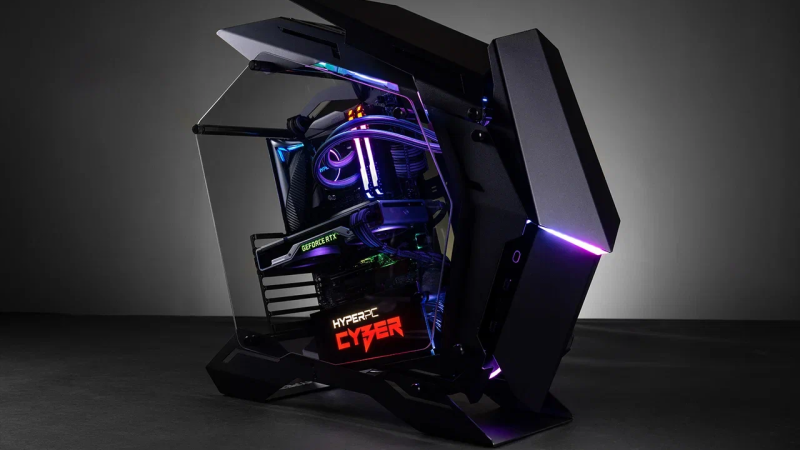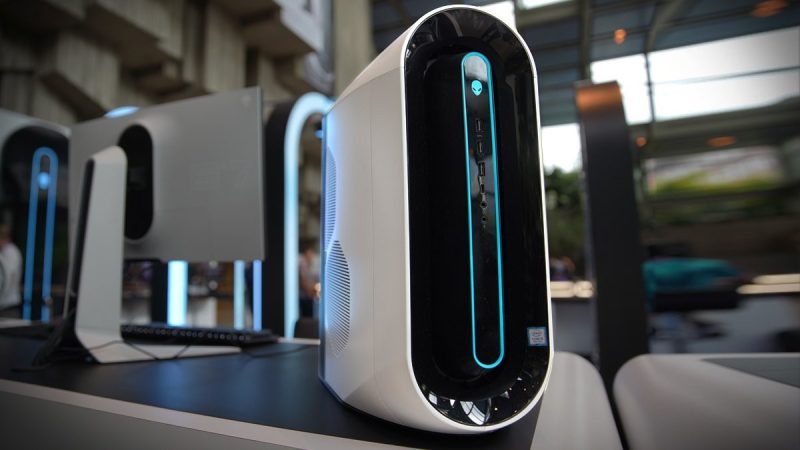Where to buy laptops?

So you have decided to buy a laptop! The immediate question is where to go to get one.
Is it better to find a bargain online, or is it safer to visit a store to physically see and touch and then decide which computer is best for your particular use? To get a quick overview of the variety available in the market, visit laptopsstudio.com!
When purchasing a laptop, several options are available to you. Here are some places where you can buy laptops, along with a brief explanation of each:
Online Retailers
Websites like Amazon, Newegg, and Best Buy’s online store allow you to browse and purchase laptops from the comfort of your home. Online retailers often offer a wide selection of laptops, competitive prices, and customer reviews to help you make an informed decision. While excellent to research specifications and prices, buying a laptop online has its pros and cons, which are explained in simple terms:
Pros:
Convenience: You can browse and purchase laptops from the comfort of your home without the need to travel to a physical store.
Wide Selection: Online retailers offer a vast range of laptops, making finding the model that suits your needs and budget easier.
Competitive Prices: Online stores often have lower prices than physical stores, with fewer overhead costs.
Customer Reviews: You can read reviews from other buyers to get insights into a laptop’s performance and quality.
Cons:
Inability to Try Before Buying: Unlike in a physical store, you can’t physically see or try the laptop before purchasing online.
Shipping Delays: Sometimes, there can be delays in receiving your laptop due to shipping or logistical issues.
Returns and Exchanges: Returning or exchanging a laptop purchased online can be more complicated and time-consuming compared to returning it to a physical store.
Potential Scams: It’s essential to be cautious of fraudulent sellers or websites when purchasing online, so always research and buy from reputable sources.
Overall, buying a laptop online offers convenience, variety, and competitive prices, but it also has some limitations and risks that should be considered. These risks are, however, well-covered if you spend some time in online research to finalize the laptop specifications that fulfill your particular needs.
Retail stores
Retail stores like Best Buy, Walmart, and Staples have dedicated electronics sections where you can find a variety of laptops. These stores often have knowledgeable staff who can assist you in choosing the right laptop for your needs. You can physically see and try out different models before making a purchase.
Manufacturer Websites
Many laptop manufacturers, such as Dell, HP, Lenovo, and Apple, have official websites where you can purchase their products directly. Buying from the manufacturer ensures you get a genuine product and may provide additional customization options.
Auction Websites
Online auction websites, like eBay and Bids.com, can sometimes have used or refurbished laptops for sale. However, it’s essential to exercise caution when buying from these platforms. Read the product descriptions carefully, check the seller’s ratings and reviews, and be aware of return policies.
Furthermore, when purchasing laptops from auction sites, there are some pitfalls to be aware of. These include the risk of buying used or faulty devices, limited or no warranty, potential scams or fraudulent sellers, and the need for careful research and evaluation of the product’s condition before purchasing.
Local Computer Shops
Local computer shops, especially those specializing in computer hardware, may have a selection of laptops for sale. These shops often have knowledgeable staff who can provide personalized advice based on your needs and budget.
Online Marketplaces
Platforms like Facebook Marketplace or Craigslist allow individuals to sell new or used laptops directly to buyers. This can sometimes offer lower prices, but be cautious and meet in a safe public place when transacting.
When purchasing a laptop, there are a few key factors to consider:
Budget: Determine how much you are willing to spend on a laptop. Laptops can vary significantly in price depending on their specifications, brand, and features.
Purpose: Think about what you’ll be using the laptop for. Are you primarily using it for schoolwork, gaming, graphic design, or general web browsing? Different purposes may require different specifications.
Specifications: Look at the laptop’s specifications, including the processor, RAM, storage capacity, display size, and graphics capabilities. These factors determine the laptop’s performance and suitability for specific tasks.
Operating System: Decide which operating system you prefer. Windows, macOS, and Chrome OS are the most common options. Each has its interface, software compatibility, and ecosystem.
Reviews and Ratings: Read reviews from other customers to understand a laptop’s performance, durability, and customer satisfaction. Pay attention to both positive and negative feedback to make a well-informed decision.
Remember, it’s essential to research and compare different options before deciding. Consider your needs, budget, and the seller’s or retailer’s reputation. Doing so lets you find the right laptop that meets your requirements and provides a satisfactory user experience.






